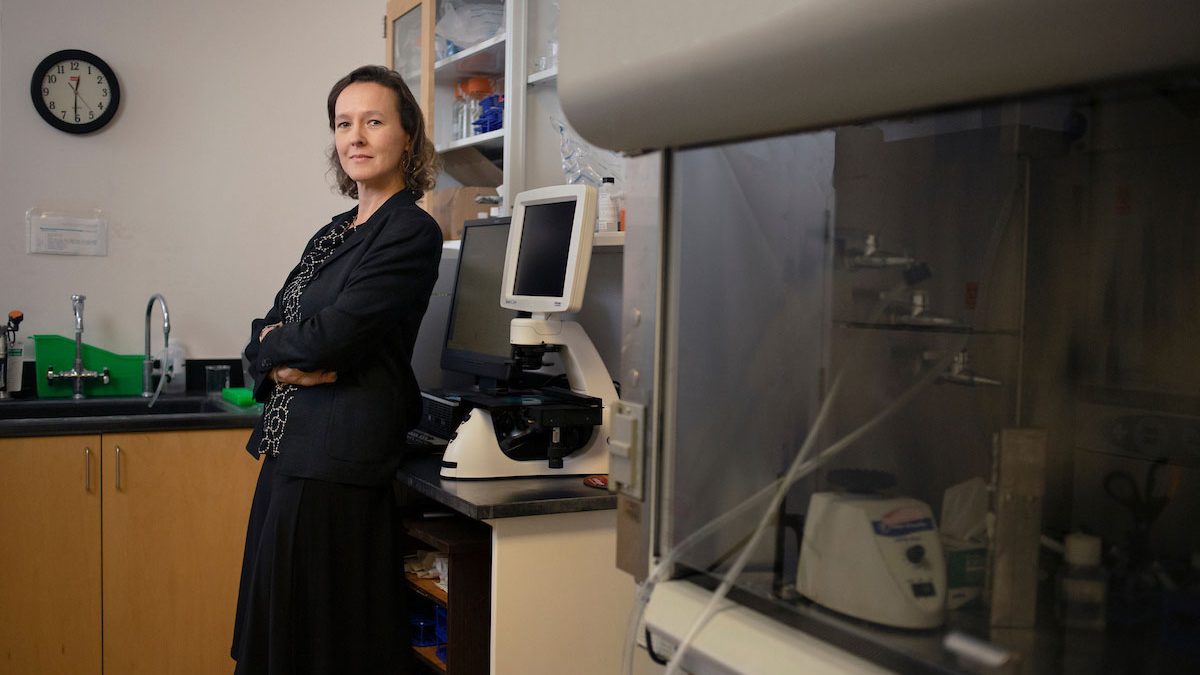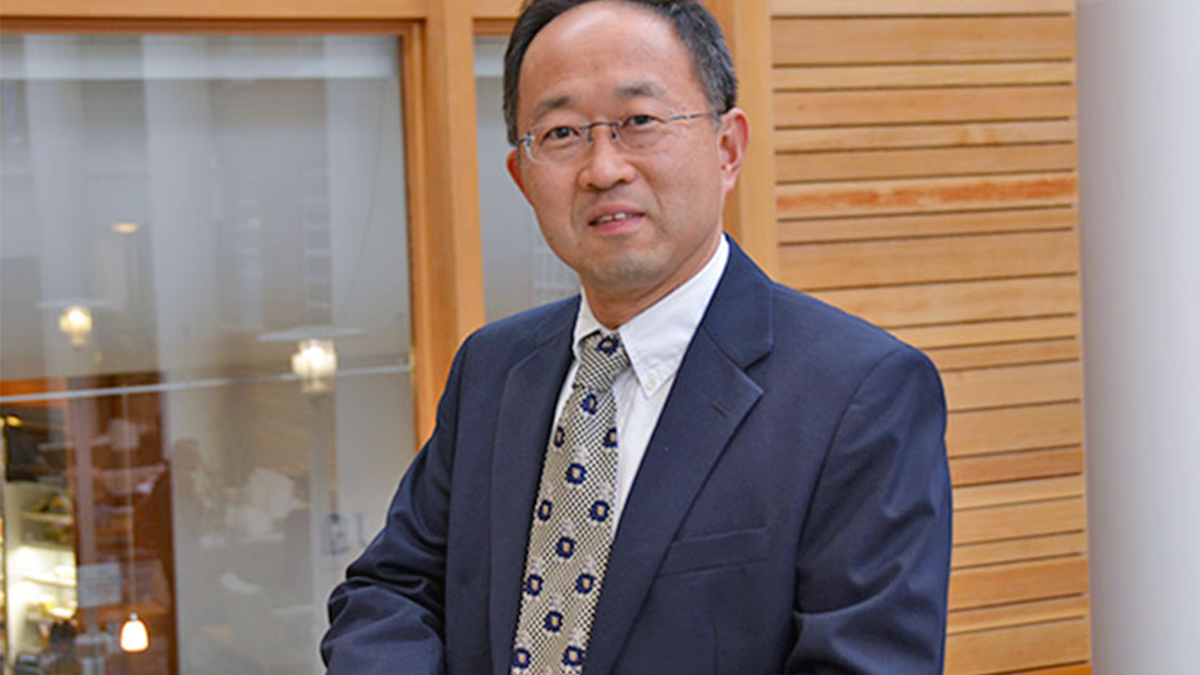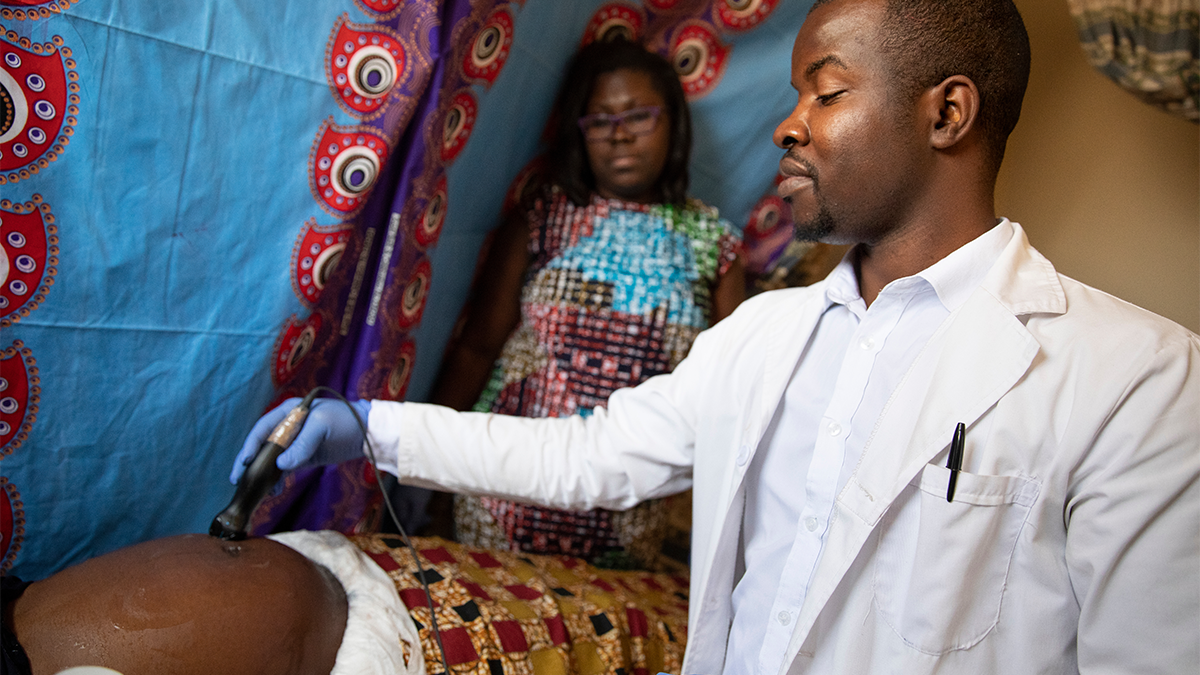Tiny particles, big discoveries
Will Vizuete captures aerosols from around the world and brings them back for testing in his lab to improve our understanding of how air pollution forms.
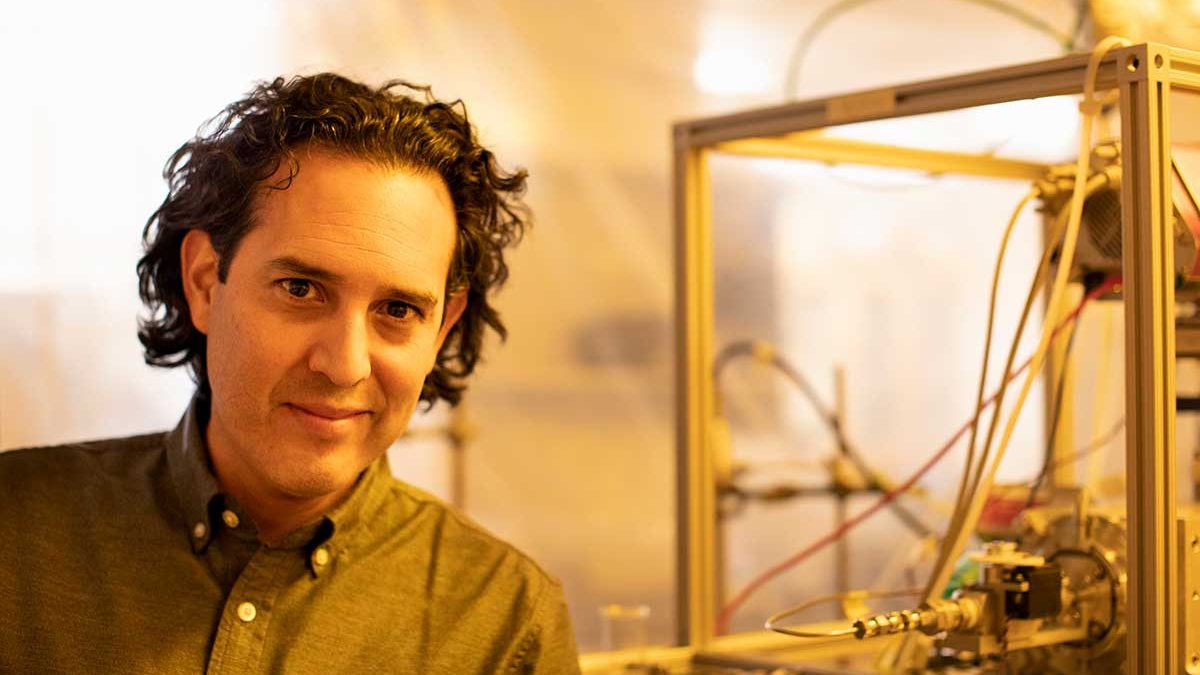
Will Vizuete captures aerosols from around the world and brings them back for testing in his lab to improve our understanding of how air pollution forms.
“Millions of people in the world breathe dangerously polluted air. What excites me most about my research is that I’m doing something that makes a real impact on society.”
Whether Will Vizuete is investigating pollution caused by wildfires in the southeastern U.S.; marijuana cultivation facilities in Denver, Colorado; diesel combustion facilities in the Galápagos Islands; or wood-burning cookstoves in low- and middle-income countries — he works to improve our understanding of how air pollution forms.
Vizuete is an associate professor in the Department of Environmental Sciences and Engineering at the UNC Gillings School of Global Public Health. Much of his research focuses on aerosol emissions, tiny particles floating in the atmosphere that, yes, can come out of a can of hairspray. But they can also come from nature — from plankton in the ocean, palm trees in the Amazon or pine trees in North Carolina. These natural aerosols, and man-made aerosols such as diesel engine exhaust, can have hazardous effects on the climate and public health all around the world.
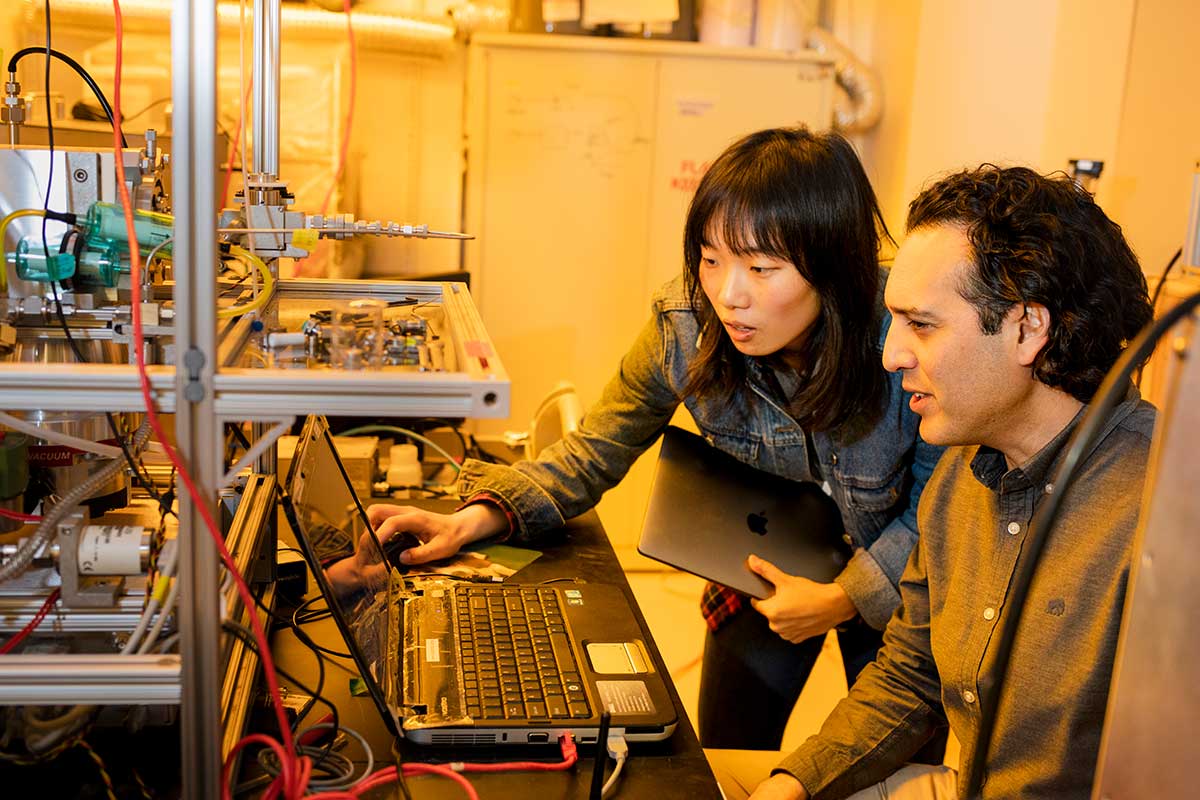
Vizuete hypothesizes that aerosols formed from combustion sources may come out of the tailpipe or exhaust the same, wherever they are, but they transform quickly and their toxicity changes constantly, depending on meteorological conditions, interactions with other pollutants and any number of undiscovered factors. In other words, aerosol emissions from a cookstove in the Smoky Mountains of North Carolina can be more or less toxic than those from the same cookstove in upstate New York.
Vizuete captures aerosols from around the world and brings them back for testing in his lab at the Gillings School. He uses high-performance computers and 3D simulations that model the atmosphere to re-create atmospheric exposures to better predict the chemical responses of aerosols.
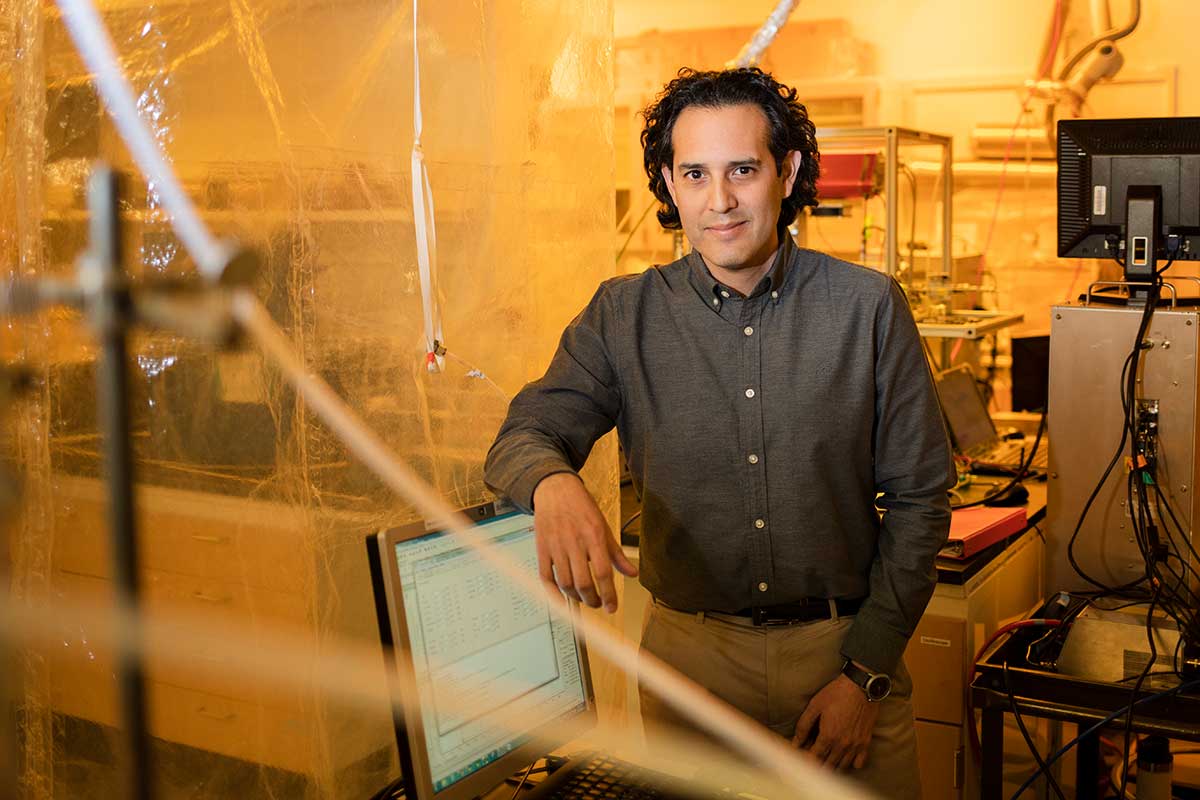
In 2014, Vizuete and a Ph.D. student designed a new biosensor that quantifies the toxicity of air. The student, Jose Zavala ’14 (Ph.D.), is now the president of MedTec, a bio-tech lab headquartered in Hillsborough, North Carolina. Because of this technology, Vizuete and other researchers are able to provide evidence-based research to better inform the world’s policy makers and improve our quality of life.
Vizuete’s current research is supported by the Initiative to Maximize Partnerships and Catalyze Teamwork (IMPACT), a jointly funded seed fund by Research Triangle Institute and UNC-Chapel Hill that supports environmental and health-related projects.
